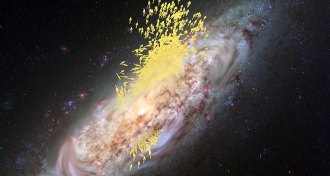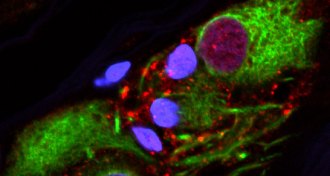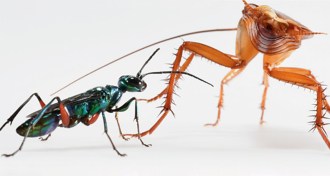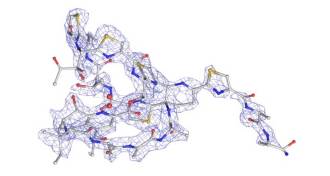News
-
 Planetary Science
Planetary ScienceDawn, the first spacecraft to orbit 2 alien worlds, has gone silent
The Dawn probe, which hopped between two objects in the asteroid belt during its seven-year mission, ran out of fuel and stopped calling home.
-
 Physics
PhysicsVanadium dioxide’s weird phase transition just got weirder
When shifting from one crystalline structure to another, the atoms inside vanadium dioxide bumble around a lot more than expected.
-
 Astronomy
AstronomyThe Milky Way feasted on a smaller galaxy 10 billion years ago
The Milky Way swallowed another galaxy billions of years ago, and the leftover stars are still roaming the sky.
-
 Paleontology
PaleontologyEggs evolved color and speckles only once — during the age of dinosaurs
Birds’ colorful eggs were inherited from their nonavian dinosaur ancestors.
-
 Neuroscience
NeuroscienceStimulating the spinal cord helps 3 more paralyzed people walk
There’s more evidence that with targeted spinal cord stimulation, paralyzed people can move voluntarily — and even walk.
-
 Health & Medicine
Health & MedicineThe appendix is implicated in Parkinson’s disease
Removal of the appendix reduced the risk of developing Parkinson’s disease, an analysis of nearly 1.7 million health records in Sweden suggests.
-
 Animals
AnimalsHow roaches fight off wasps that turn their victims into zombies
Cockroaches kick attacking emerald jewel wasps to avoid being incapacitated and buried alive as living meat for the wasps’ young.
By Susan Milius -
 Astronomy
AstronomyThe planet-hunting Kepler space telescope is dead
The Kepler space telescope is officially out of fuel and will hunt planets no more, NASA announced.
-
 Neuroscience
NeuroscienceYoung people’s memories improved when they stopped using marijuana
After just a week of not using pot, teens’ and young adults’ abilities to remember lists of words got better, a small study finds.
-
 Chemistry
ChemistryNew devices could help turn atmospheric CO2 into useful supplies
New electrochemical cells transform carbon monoxide into useful chemical compounds like ethylene and acetate much more efficiently than their predecessors.
-
 Archaeology
ArchaeologyAncient South Americans tasted chocolate 1,500 years before anyone else
Artifacts with traces of cacao push back the known date for when the plant was first domesticated by 1,500 years.
By Bruce Bower -
 Chemistry
ChemistryZapping substances with electrons can quickly map chemical structures
Speedy molecular identification originally developed for proteins might benefit crime lab researchers and drugmakers.
By Carmen Drahl